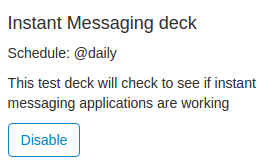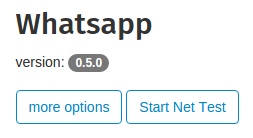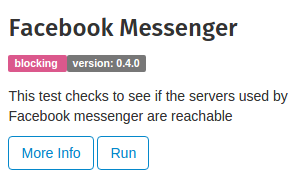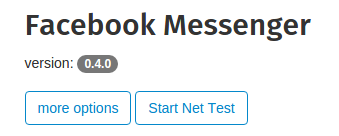New OONI tests examine the blocking of WhatsApp and Facebook Messenger
Today the Open Observatory of Network Interference (OONI) project is excited to announce the release of two new software tests which are designed to examine the blocking of WhatsApp and Facebook Messenger. You can now run these tests to monitor the accessibility of these apps across time, and to collect data that can serve as evidence when/if they are blocked.
WhatsApp test
Many of our users have asked us to develop a test to examine the accessibility of WhatsApp, especially in light of it being blocked by various governments around the world during elections, protests, and other political events.
In response, OONI developed a test that examines the reachability of both WhatsApp’s app and web interface (web.whatsapp.com) within a network. In doing so, our new test not only examines whether WhatsApp is blocked, but also collects data which shows how censorship is implemented.
This test, in particular, attempts to perform an HTTP GET request, to establish a TCP connection and to perform a DNS lookup to WhatsApp’s endpoints, registration service, and web version over the vantage point of the user. According to our methodology, WhatsApp’s app is likely blocked if any of the following apply:
TCP/IP connections to WhatsApp’s endpoints fail;
TCP/IP connections to WhatsApp’s registration service fail;
DNS lookup illustrates that unexpected IP addresses have been allocated to WhatsApp’s endpoints;
HTTP requests to WhatsApp’s registration service do not send back a response to OONI’s servers.
WhatsApp’s web interface (web.whatsapp.com), on the other hand, is likely blocked if any of the following apply:
TCP/IP connections to web.whatsapp.com fail;
DNS lookup illustrates that an unexpected IP address has been allocated to web.whatsapp.com;
HTTP requests to web.whatsapp.com do not send back a consistent response to OONI’s servers.
If you’re a macOS or Linux user, you can run this test through the following steps:
Install OONI Probe.
[Access OONI Probe’s web UI](https://ooni.org/install/ooniprobe/#running-OONI Probe) in your web browser.
By default, the WhatsApp test will automatically be run from your computer on a daily basis. To opt-out, disable the Instant Messaging deck under the decks section of the web UI.

To actively run the WhatsApp test, click Run under WhatsApp in the nettests section of the web UI.

Then click Start Net Test to start testing the reachability of WhatsApp in your network.

To view the results of your test, click measurements in OONI’s web UI.
Facebook Messenger test
Similarly to WhatsApp, Facebook Messenger serves a large user base around the world and has been the target of censorship by various governments. OONI has released a new test that is designed to examine the reachability of Facebook Messenger within a network.
This test, in particular, attempts to perform a TCP connection and DNS lookup to Facebook’s endpoints over the vantage point of the user. According to our methodology, Facebook Messenger is likely blocked if one or both of the following apply:
TCP connections to Facebook’s endpoints fail;
DNS lookups to domains associated to Facebook do not resolve to IP addresses allocated to Facebook.
If you’re a macOS or Linux user, you can run this test through the following steps:
[Install](https://ooni.org/install/OONI Probe/) OONI Probe.
[Access OONI Probe’s web UI](https://ooni.org/install/OONI Probe/#running-OONI Probe) in your web browser.
By default, the Facebook Messenger test will automatically be run from your computer on a daily basis. To opt-out, disable the Instant Messaging deck under the decks section of the web UI.

To actively run the Facebook Messenger test, click Run under Facebook Messenger in the nettests section of the web UI.

Then click Start Net Test to start testing the reachability of Facebook Messenger in your network.

To view the results of your test, click measurements in OONI’s web UI.
By contributing to the testing of these instant messaging apps, you can help increase transparency in regards to where, when, and how they are blocked around the world.